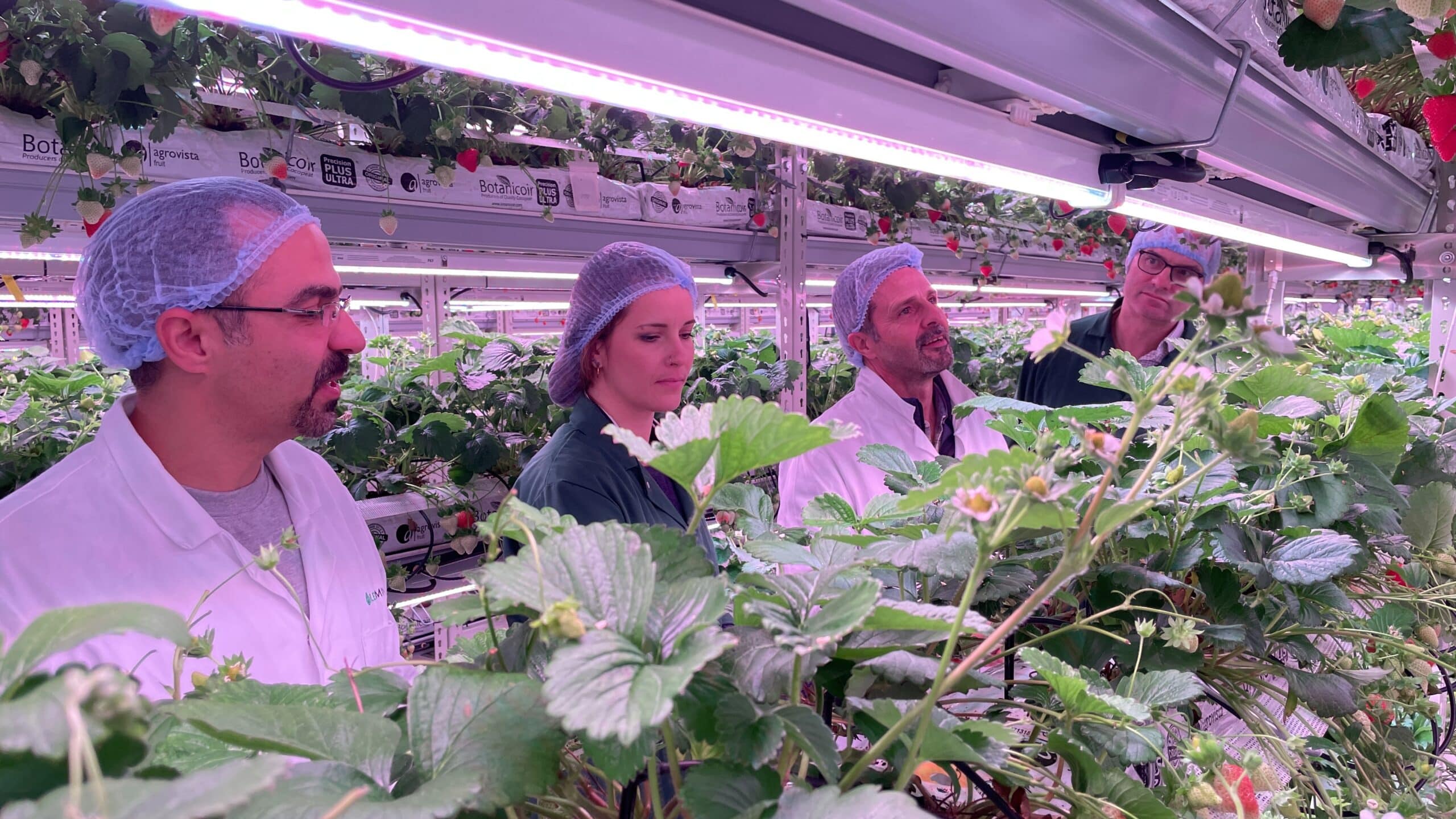Key Takeaways:
- Innophyte Consulting is coordinating a consortium with FlexFarming and Niab to evaluate strategies for Totally Controlled Environment Agriculture (TCEA) strawberry production.
- The project will assess methods to reduce nitrogen inputs, manage canopy growth, and improve disease control in indoor farming environments.
- CO₂ enrichment using Metal-Organic Framework (MOF) technology will be tested to maintain photosynthetic performance under reduced input conditions.
- Initial research and testing will occur at Niab East Malling, with commercial trials planned at FlexFarming’s facilities.
- The initiative aims to examine ways to improve resource efficiency and support UK out-of-season soft fruit production.
Innophyte Consulting Launches Collaborative TCEA Strawberry Research Initiative
Innophyte Consulting (Profile), in partnership with FlexFarming and Niab, has initiated a research project focused on improving production efficiency in Totally Controlled Environment Agriculture (TCEA) for strawberries. The initiative seeks to evaluate resource optimisation strategies, including fertiliser reduction and CO₂ supplementation, to address challenges in indoor soft fruit cultivation.
The project is being developed in response to recent declines in UK strawberry production, which has reportedly fallen by 25% over the past six years. With a significant portion of strawberries now imported, the consortium is exploring approaches that may contribute to improving local supply potential.
Evaluating Nutrient Management in Controlled Environments
A primary area of focus for the project is nitrogen input management. Research conducted by Niab on polytunnel-grown strawberries has shown that adjusting nitrogen to crop-specific demand levels may help reduce excessive canopy growth and improve fruit quality.
“Inputs of nitrogen in TCEA, polytunnel, and glasshouse strawberry production often exceed demand, which leads to over-vigorous plant canopies and lower quality fruit,” said Dr. Mark Else of Niab. “We think that similar efficiencies can be achieved in TCEA, and in this project, we will develop and test a low-N growing strategy for commercial out-of-season berry production.”
The consortium will assess whether such practices can reduce operating costs, disease risk, and environmental impact in TCEA systems while maintaining yield and quality standards.
Testing CO₂ Enrichment with MOF Technology
To support photosynthetic activity under reduced nitrogen conditions, the project will also test Metal-Organic Framework (MOF) technology, which enables cost-effective atmospheric CO₂ capture and release. The aim is to assess whether CO₂ enrichment can offset the effects of smaller canopy structures by maintaining or enhancing plant productivity.
Initial testing will take place at Niab East Malling, with commercial-scale trials to follow at FlexFarming, which will host the technology under real production conditions.
“Strawberry production in TCEA is more complex than leafy greens, but with the right innovations, we can evaluate methods to improve year-round yield consistency,” said Ahmad Mohseni, CEO of FlexFarming.
Innophyte Consulting Project Focuses on Input Efficiency and Supply Chain Resilience
According to the project team, the integration of reduced-input nutrient strategies with CO₂ enrichment may offer pathways to improve economic and environmental performance in indoor strawberry production. In addition to evaluating crop outcomes, the project will monitor implications for input costs, energy use, and overall system efficiency.
Dr. Jim Stevens, Senior Innovation Consultant at Innophyte Consulting, noted, “The outcomes from this project will help to assess ways to lower inputs, labour, and energy costs, while maintaining yield and quality. There are potential benefits for improving consistency in production and resilience in the UK soft fruit sector, but these must be carefully validated.”
Next Steps and Research Timeline
The project will be carried out over multiple phases, starting with system trials at Niab and progressing to commercial evaluation at FlexFarming. Findings will inform broader discussions around the role of TCEA in the UK’s out-of-season fruit production landscape.
As part of the research, Innophyte Consulting and its partners aim to identify practical solutions for growers navigating the challenges of high-input costs, variable crop performance, and increasing market demand for locally grown produce.


